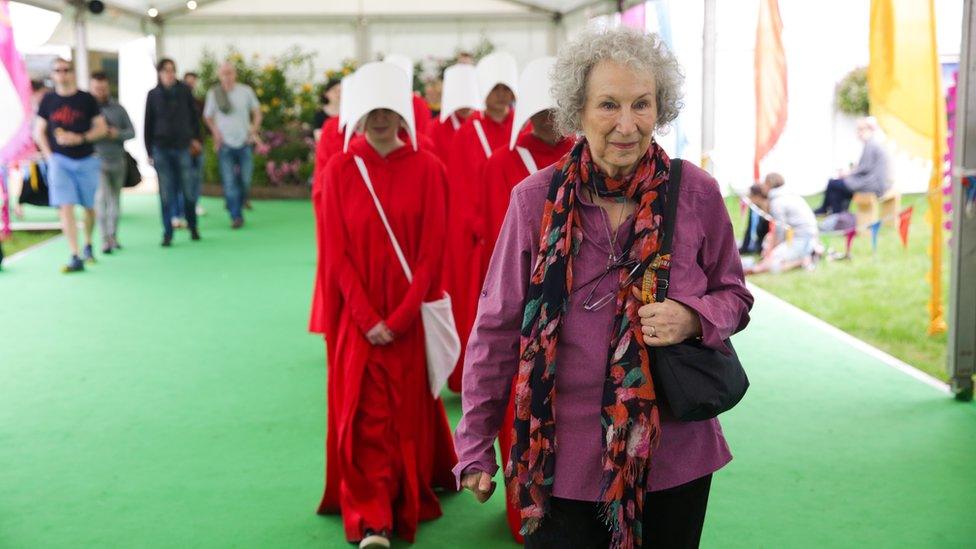Handmaid's Tale: Was it right to take the series beyond the book?
- Published
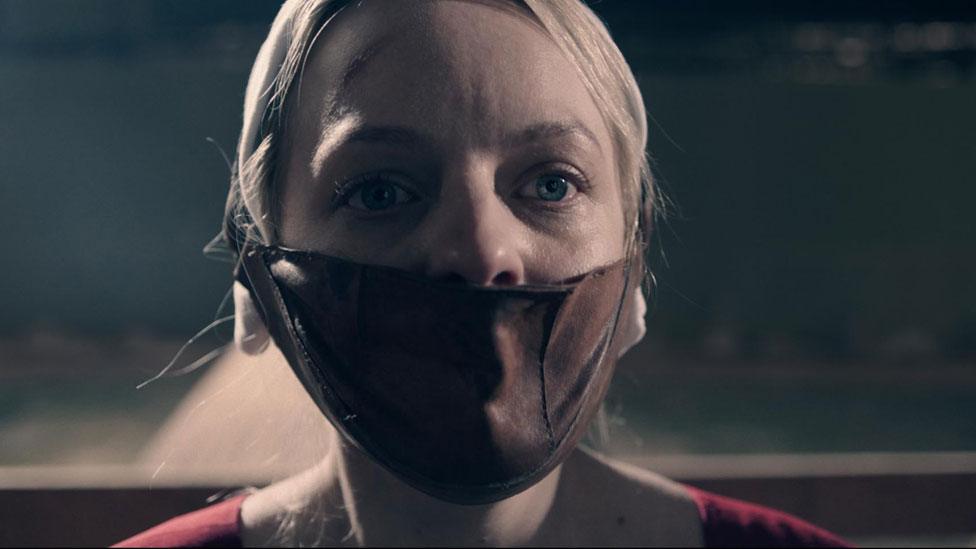
Elisabeth Moss starred as June in The Handmaid's Tale
*** Spoiler alert: this article contains some content about the plot points from The Handmaid's Tale. ***
The second series of the Handmaid's Tale came to an end on Sunday night.
Writing in iNews, Mark Butler calls the finale, external "a nail-biting conclusion to the season, with a controversial twist", but Vanity Fair's Sonia Saraiya termed the climax, external "a singularly frustrating end to a season that, despite its high points, often struggled to find its purpose".
The series went beyond Margaret Atwood's original novel - with her blessing - but how well did the show do in extending the novel beyond its intended lifecycle and how difficult is it to go beyond the book of an acclaimed author like Atwood?
"The novel ends quite ambiguously," says Julia Raeside, who has written The Guardian's episode-by-episode guide to series two of The Handmaid's Tale.
Speaking to BBC News, she adds: "It's really interesting when someone takes up the mantle of an unfinished story. If they've got something to say about what happens when you repress women for so long, then it's something I welcome."
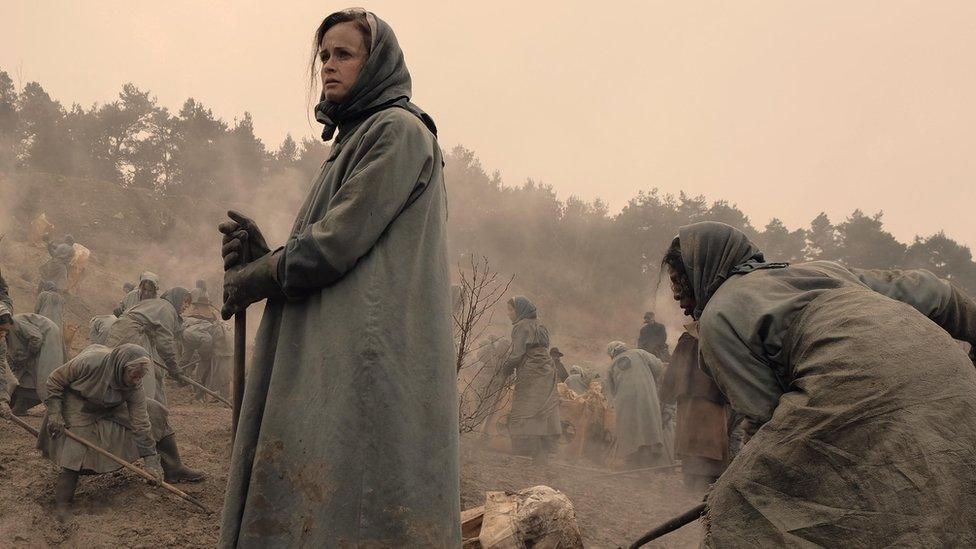
The Handmaid's Tale has been confirmed for a third series
The second series has been criticised by some for its brutal scenes, with some viewers switching off entirely due to what's been termed by some as "needless torture porn, external".
"I think the first couple of episodes were slightly misjudged," says Raeside, "and I wonder how much brutality Atwood really agreed with.
"But on the whole it's been a fascinating watch. Some of the detail and colour they've added has been brilliant - for example, details about the regime and how the rest of the world sees the Republic of Gilead. The episode when the commander and his wife go to Canada and are initially welcomed is a personal highlight."
The Independent's culture editor, Christopher Hooton, agrees that overall the second series is a triumph, saying "it may be the best adaptation and extension of a novel to date".
"The shift to a modern day setting has made the horrors of Gilead seem all the more stark and urgent... whether it's the millennial characters having so recently been hopping carefree between bars in an Uber, or June convalescing during her escape by watching some Friends on an iPad."
He calls the move beyond the novel to the second season "seamless", and says "the first half was for me even better than much of season one".
"The show's only real falter came with the season finale," he says, "which felt more George Lucas than Margaret Atwood as June pulled her hood up and headed back into the fray. The drama felt forced for the first time."
Todd van der Werff - critic at large for Vox - says, however, that a number of flaws have already crept in.
"What will eventually burden the show is that you can see the wheels turning where they need to keep it going for the next season. Atwood showed a tiny window into this horrible world, but they are making it a much larger window.
"It's difficult to do this without it turning into misery porn. So then you have to introduce new lighter elements, which run the risk of being oversentimental and saccharine in their nature," van der Werff says.
The boss of streaming service Hulu, Randy Freer, has commented that the show could go on for 10 series. But van der Werff says that would be quite a push: "For season two, the writers were pretty clever at leaving themselves a few things from the novel that they didn't include in season one - like time June spends with her mother. But I struggle to think of any show that's good over ten seasons - especially a drama.
"I think the show is good independent of the current political situation - in the western world, we have this creeping tide of authoritarian ideas at the fringes of the political sphere - but I wonder how much appetite there would be for The Handmaid's Tale without the existence of Donald Trump as the president. I doubt it'd win as many as awards..."
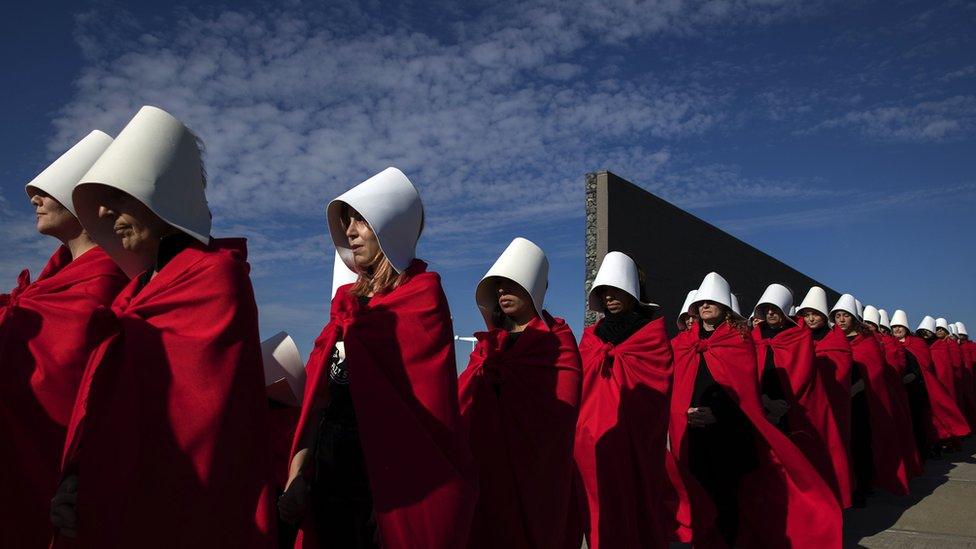
Protesters in Argentina campaigned for the legalisation of abortion dressed as handmaids earlier this month
Raeside, however, admits at this point she still has appetite for more: "I'd like to see more of how the regime came to power, how it's run. The way they leave a series in Handmaid's Tale is unique and means you'll want to watch more. Is revolution on the way?"
Hooton says: "I generally prefer shows to be economic in terms of number of seasons, but I think The Handmaid's Tale is a rare example where something longer could work. There are enough interesting facets to the show's universe to fill more seasons, although we may need to step into different characters' shoes for a while as The Wire did."
Taking a television show beyond its source material is not new - but has certainly become more ambitious in its nature, according to Raeside: "Long form content has become the new thing. It's a new method of TV making which wasn't around 20 years ago. The TV industry didn't used to just pick up and run with a franchise no matter if it had any legs or not."
"There was a bit more reverence in old-fashioned TV," she adds, "where you wouldn't dream of making up new developments for a character because it wasn't your character. I think TV has become cheekier."
Guardian TV critic Sam Wollaston points out there is a lot of financial gain in long-term content: "Television is all about series these days - studios are never going to give up on a massive audience like that."
Game of Thrones is an obvious example of where the television series has outpaced the author's source material to keep up with demand - and done with "varying success", according to van der Werff.
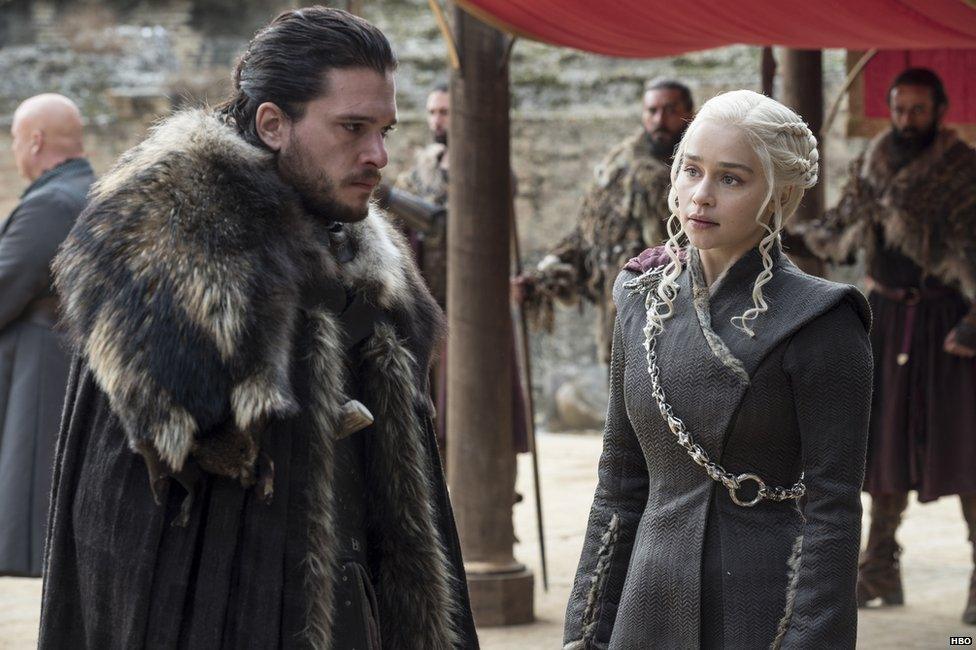
Series eight of Game of Thrones will be the final one
By series six the show creators David Benioff and DB Weiss had already gone beyond George RR Martin's five novels. And despite being provided with a brief story arc by the author, van der Werff says the latter seasons consequently "feel like they are jumping through plot points. It makes no sense geographically, and feels like they are rushing through to a final conclusion."
And Hooton thinks the trajectory of the show has been shaped by fans' expectations: "The situation with Game of Thrones is interesting, the show having morphed from a sort of political one to an all-out war epic. I think this has more to do with the hype and expectation coming from viewers than adaptation, however."
Television adaptations have a tricky balancing act between portraying a faithful depiction of the world in which they're set, and expanding them.
And the success of a show "entirely depends on who's doing the adaptation", says Raeside. "Someone like Steven Moffat does it really cleverly in Sherlock and canters off with the idea."
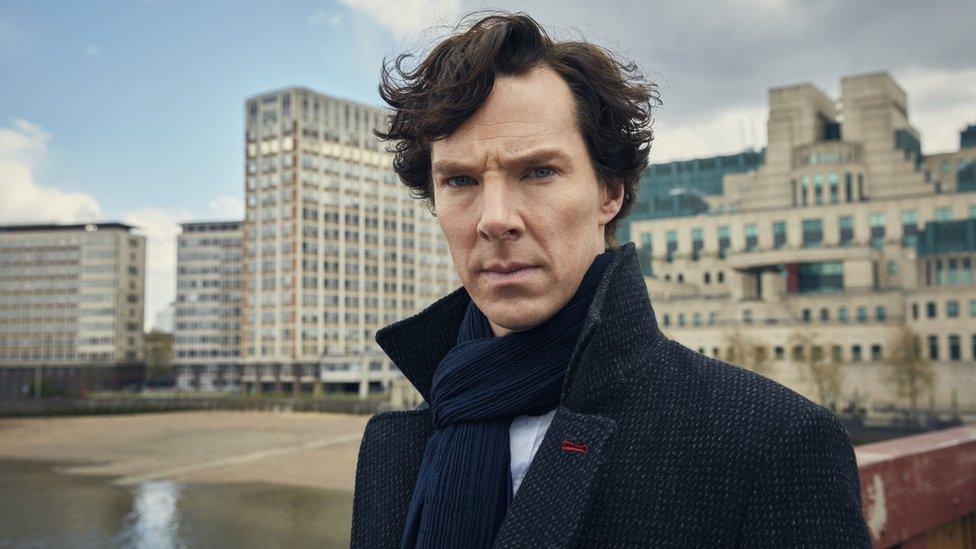
Steven Moffat has taken the premise of Sherlock Holmes far beyond the original books
Wollaston agrees: "Sherlock is so beyond the original novels - but there is a kind of spirit of him in the series. It's done really well because there are nods to Arthur Conan Doyle all over the place."
Other shows have done this less well, with van der Werff terming "problematic" The Walking Dead, which was originally based on a comic book series, "because it became long and too much of a slog. The same stuff just kept happening."
And there is some debate over when exactly Netflix's House of Cards, external, which was based on a 1989 British novel of the same name, had jumped the shark - or outstayed its welcome.
Wollaston says he "entirely stopped" watching the show for the past couple of series because it had become too preposterous.
"With The Handmaid's Tale though, I think it's ok for it to have carried on because it's a world and a situation - and I think that works with other worlds, like Game of Thrones, which continue the idea.
"The Handmaid's Tale has never been more relevant and it still resonates," he adds. "The fact that the handmaid outfit is still being used as a protest symbol kind of speaks for itself."

Follow us on Facebook, external, on Twitter @BBCNewsEnts, external, or on Instagram at bbcnewsents, external. If you have a story suggestion email entertainment.news@bbc.co.uk.
- Published21 May 2018
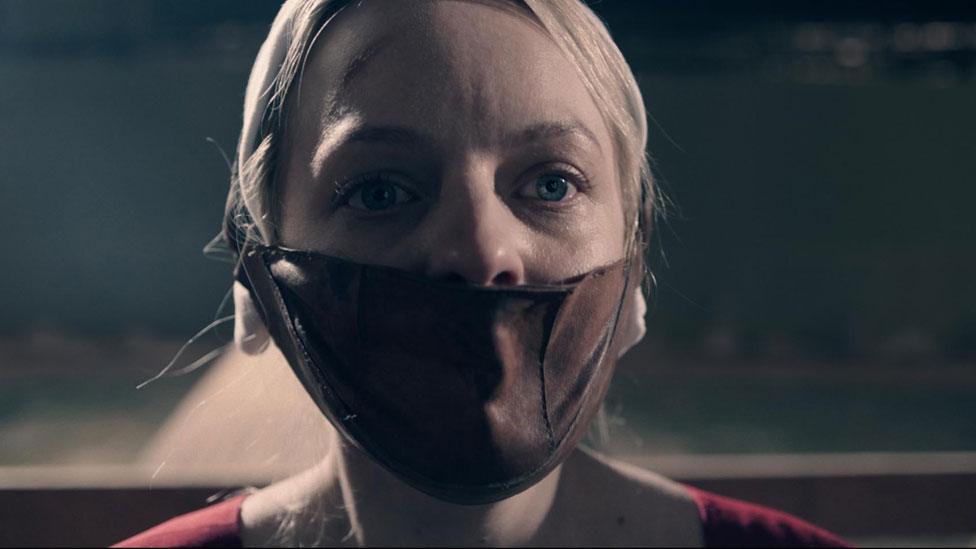
- Published26 June 2018
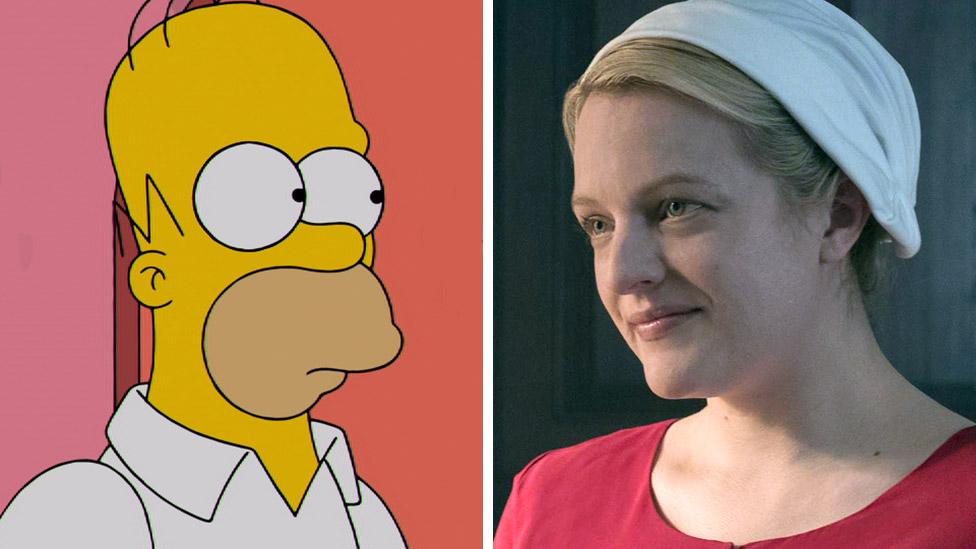
- Published28 May 2018
